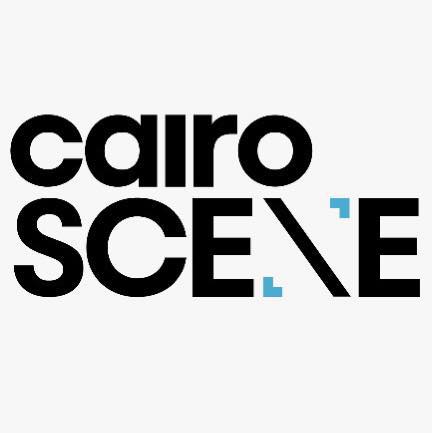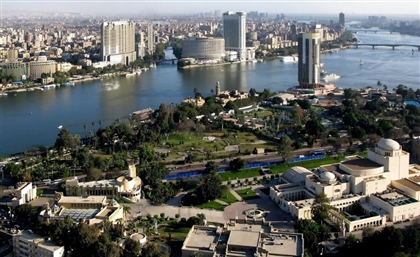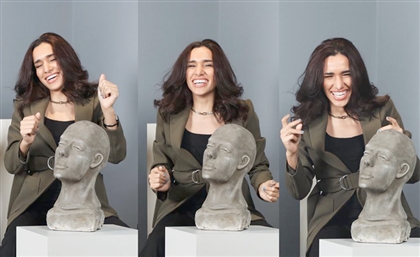How pew. is Breaking Past Borders With Brilliant Brand Design
Having worked with Swvl, Google and YouTube, pew. design bureau moved to Los Angeles to show that their powerful branding philosophy has no borders.

Often, the factor separating an up-and-coming startup from a full-fledged scaleup pioneering the future of consumer technology is a single, ephemeral quality that many do not associate with the industry: presentation. How a brand presents itself to investors and the public at large can be their greatest asset, allowing them to communicate with and earn the trust of others in ways that would otherwise not be possible. Founded by Nourhan Wahdan and Al Hassan Elwan in 2017, pew. design bureau has enabled companies across four continents to communicate their story, messages and ideals through brand consultancy, strategy and design, from Egyptian startups like Swvl to global corporations like Google and YouTube. Having moved their headquarters from Cairo to Los Angeles in 2022, pew. is looking to expand their reach across the horizon while still holding strong to its roots in Egypt.
The story of pew. began when Al Hassan and Nourhan realised that agency culture in Egypt was unrewarding - both creatively, and materially. Deciding to take a gamble on their own abilities, the duo launched pew., approaching the local market with a subversive design philosophy - one grounded in collaboration with their clients, using hands-on experimentation and research to find new forms of expression that not only communicate what the clients want to say, but how they want to say it. Neither of which are as superficial as some may assume.
“One thing we noticed the industry gets hung up on is aesthetics,” co-founder Al Hassan Elwan tells CairoScene. “Whether it’s conversations about taste or form they ultimately don’t matter if clear business goals and audience insights are overlooked or not properly taken into account. I really think we, as designers, should stop prioritising aesthetics over strategy.”
Seven years and four continents later, they've built a diversified roster of clients. Amongst their most unique regional clients is Sokna, an Egyptian funerary service platform who presented them with a challenge few have taken on. Planning their visual and verbal communication from the strategic level, pew. was able to tackle the uncomfortable subject of death in a way that addresses the target clients’ needs and frustrations. In a culture that is often reluctant to shake the boat, pew.’s branding demonstrates how Sokna’s new end-to-end funerary services actually honour their loved ones in life and in death. By doing so, pew. brought Sokna's services to the mainstream, even securing a prominent, much-sought-after advertising spot during the Ramadan season.
Dubai-based BNPL platform, Tabby, is another brand that benefited from pew.'s services. Through a strong visual system, pew. was able to push Tabby's overall strategy onwards, angling them as an evolved form of money that allows clients to gain financial freedom and flexibility, and attracting large-scale investors that helped raise the value of the business's equity.
Their partnership with Swvl, an Egyptian bus booking and transportation app, saw them take thorough control of Swvl's narrative. Working from the ground up, pew. decided to once again take the context of the business into account. While Egypt’s streets are associated with chaos, pew. chose to present Swvl as a bastion of order. In their commercials, this is emphasised through depictions of illogical occurrences and random happenings throughout Cairo - and in the midst of it all, Swvl’s bus drivers keep their schedules and continue on their way, immune to the chaos, confident in their own sense of order. They are presented as an obvious choice, a commute that you can afford to take for granted, a notion further emphasised in pew.’s more short form commercials and posters. By appealing to the audience's need for modern, no-nonsense solutions, pew. has allowed Swvl’s brand recognition to rise to prominence, and eventually light up the Burj Khalifa in Dubai and Times Square in New York City.
After establishing themselves regionally, pew.'s work with global, household brands has also helped strengthen their global position as a pioneering design force. In looking for a studio to bring their YouTube Warehouse experience to life for the first time in Egypt, YouTube trusted pew. to design the 10-day bootcamp, wherein over 500 executives would attend to discuss the power and potential of the platform. pew. created the YouTube Warehouse Cairo, a physical space that is based on a simple yet compelling idea: what if you could literally sit backstage at an actual YouTube video? With ultra-wide screens wrapping around the audience, attendants were thoroughly immersed in a surreal digital experience, cementing pew.’s reputation as “the studio that brought YouTube to Cairo.”
“As a creative I’ve always held originality in very high regard but with such a fast-paced market I’ve come to realise that it’s more about agility and being ready to adapt and accommodate change,” co-founder and Creative Director Nourhan Wahdan says. “When it comes to our work now, especially with branding, we try to worry less about being original and more about being influential.”
Naturally, being influential is not just for other companies’ brands. Shortly after moving to Los Angeles, Nourhan Wahdan wasted little time representing her studio at events across the US such as AIGA Design Camp at The Minneapolis Institute of Art, or being featured at LA-based magazines such as VoyageLA. With pew. continues to make tracks in the design industry, Nourhan and Al Hassan are making a powerful argument that style, flair and substance knows no borders.
- Previous Article Italian-Palestinian Duo No Input Debuts Eponymous Electro EP
- Next Article Egyptian Embassies Around the World
Trending This Week
-
Mar 09, 2025























